Does this sound familiar?
- Feeling stuck or unsure about your next step
- Looking to find balance with professional and personal responsibilities
- Seeking better time management
- Facing a career transition or burnout
- Struggling with life transition and balancing responsibilities
- Aligning your purpose, confidence, and direction
- Wanting accountability to achieve your goals
If any of this sounds familiar, coaching can help you create lasting, positive change.
Executive Function Coaching for Adults – How It Works
When is coaching helpful?
Coaching offers personalized support that helps individuals develop practical strategies for evaluating resources, formulating plans and following through. Coaching helps individuals prioritize, better manage time or stay organized, as well as improve focus. Through regular, goal-oriented sessions, coaching can boost self-awareness, build confidence, and foster independence in academics, work, and daily life. It also provides accountability and emotional support, helping individuals navigate transitions and reduce feelings of being overwhelmed while leveraging an individual’s unique strengths. Here are a few examples of when coaching can be helpful:
- When seeking guidance for adult responsibilities
- Life Transitions & Personal Focus
- Balancing Financial Demands
- Career/Professional Coaching
- Relationship & Communication Coaching
- Unique situations such as ADHD, Working Memory or TBI
How to determine if coaching is right for you
Schedule A Free Discovery Call
-
Schedule Free Discovery Call – We clarify what you’re seeking and how we can help.
-
Schedule a few 1:1 Coaching Sessions – Weekly or bi-weekly deep dives tailored to your goals.
-
Experience Sustainable Progress – You gain clarity, tools, and momentum for real-life results.
Whether you are an adult experiencing a transition or you need help figuring out life how to overcome an obstacle, coaching can help.
What are executive function skills and why are they important?
Executive functions are the skills we utilize to make decisions, plan ahead, and follow through on tasks and goals—very important skills to have. Adults, particularly young adults can greatly benefit from executive function coaching for several key reasons. Executive functions are the mental processes that help individuals plan, organize, remember information, manage time, solve problems, and regulate their emotions and behaviors. These skills are crucial for success in school, work, and personal life. Here’s why young adults may need executive function coaching:
1. Transitioning to Independence
- New Responsibilities: As young adults transition from high school to college or into the workforce, they face greater independence and more complex responsibilities. This requires advanced executive functioning skills like time management, organization, and task prioritization.
- Self-Management: Without the structure of high school or family support, young adults may struggle with self-regulation and organizing their day-to-day tasks. Executive function coaching helps them develop these self-management skills.
2. Academic and Professional Success
- Planning and Organization: In both college, graduate school and professional settings, young adults need to juggle multiple tasks, deadlines, and projects. Executive function coaching can improve skills like breaking down large tasks, managing long-term projects, and maintaining focus.
- Time Management: Managing a busy schedule with work, studies, and personal commitments is a challenge. Coaching can help young adults develop systems to better organize their time and prioritize their responsibilities.
3. Emotional Regulation
- Managing Stress and Frustration: The demands of young adulthood can lead to stress, anxiety, and emotional overwhelm. Executive function coaching includes strategies to help manage emotions, stay calm under pressure, and avoid impulsive reactions.
- Self-Motivation: Sometimes, young adults may struggle with motivation, especially when tasks feel overwhelming or uninteresting. Coaches can teach techniques to boost motivation and sustain focus on goals.
4. Goal Setting and Decision Making
- Clarifying and Setting Goals: Young adults often struggle with defining their long-term goals and breaking them down into achievable steps. Executive function coaching teaches them how to set realistic goals, track progress, and adjust strategies as needed.
- Making Informed Decisions: Good decision-making is rooted in executive functions. Coaching helps young adults weigh pros and cons, evaluate risks, and consider long-term consequences of their actions.
5. Developing Life Skills for the Future
- Improving Communication and Interpersonal Skills: Executive function coaching often addresses how to manage relationships, communicate effectively, and regulate emotions in social situations—skills crucial for personal and professional success.
- Building Self-Awareness: Coaching helps young adults become more self-aware, improving their ability to recognize when they are struggling with executive functions and developing proactive strategies to manage challenges.
6. Support for Neurodiversity and Learning Differences
- ADHD and Other Conditions: Many young adults, especially those with ADHD or learning disabilities, face difficulties in executive functioning. Coaching provides tailored support to help them develop the skills they need to overcome challenges related to attention, memory, and self-regulation.
- Customized Approaches: Executive function coaching can be personalized to address the specific needs of individuals, offering tools and strategies that work best for their unique cognitive profiles.
In summary, executive function coaching helps young adults bridge the gap between where they are and where they want to be in terms of academic, professional, and personal development. It fosters essential life skills, enhances overall productivity, and empowers individuals to achieve their goals with confidence.
Meet the Team
Meet Maureen.
A creative and compassionate educator with 20 years of coaching expertise, Maureen Carlomagno provides educational experiences with an empathy-led approach to individual growth.
With a belief that everyone deserves to be supported and connected, Maureen enjoys collaborating with students to implement strategies that are rooted in best practices. She also integrates both academic and self-care principles in her work with students.
Maureen is a Master-level Certified Intrinsic Coach, Certified Health Education Specialist, and National Board Certified Health Coach. She holds a Bachelor’s Degree in Biology and Spanish from Salem College, a Masters in Public Health from Boston University, and a Certificate in Program Management from Boston University.
While she is delivering coaching with Effective Students techniques, her approach can be summarized by the following Stephen Spielberg quote,
“The delicate balance of mentoring someone is not creating them in your own image but giving them the opportunity to create themselves.”
When she is not coaching, she enjoys spending time with family and friends, trying new recipes or working in her garden, and volunteering in her community.
Meet Natalie Thandiwe:
Nathalie has over 20 years experience as a coach, executive trainer and adult education instructor. As a certified executive function coach, her specialty is coaching adults and students to help them develop time management, professional workload/project management and study skills. She’s experienced in working with clients with ADHD, Autism, and Twice Exceptional (2e) learners who have disabilities or developmental challenges along with areas of high abilities or giftedness. She enjoys helping students ‘learn how to learn’, in ways that are effective for them to succeed.
Meet Natalie Williams.
A purpose-driven educator, coach, and workforce strategist, Natalie R. Williams brings over 20 years of experience helping individuals and organizations unlock their full potential through clarity, compassion, and connection.
Natalie’s approach is rooted in the belief that every person deserves the opportunity to grow with dignity and purpose. Whether she’s coaching professionals, teaching college students, or designing workforce development programs, she integrates practical strategies with empathy-led guidance to foster meaningful transformation.
Her career spans leadership roles across nonprofit, academic, and corporate sectors, where she has developed award-winning programs in employee engagement, leadership development, and organizational culture. She currently teaches business technology and professional advancement courses at the college and university level and supports adult learners in building confidence, clarity, and career readiness.
Natalie holds a Master of Public Administration and a Bachelor of Business Administration from Strayer University. She is a Certified Executive & Life Coach (ICF-accredited), a Georgia-certified educator, and the author of The CORE Method: Guide to Purpose-Driven Results.
While she delivers coaching using Effective Students techniques, her philosophy is best captured by this quote from Maya Angelou:
“My mission in life is not merely to survive, but to thrive; and to do so with some passion, some compassion, some humor, and some style.”
Outside of work, Natalie enjoys mentoring youth, writing, and spending time with her family. She is passionate about creating spaces where people feel seen, supported, and empowered to lead with purpose.
Meet Catherine:
Dr. Sherrard comes to the Effective Students team in Louisville following 25 years of experience in higher education including roles in admissions, student life, and most recently as the chief academic officer at a large campus within a statewide community college system. Her career in education includes a number of community initiatives focused on student success and credential
completion.
As a lifelong Kentuckian, Catherine earned her Bachelor of Arts in criminal justice from Kentucky Wesleyan College and Master of Science in justice administration from the University of Louisville. She spent her early career working in local government at a criminal justice planning agency. She earned her Doctor of Education in leadership education from Spalding University.
As the mother of two boys, a young adult with Down syndrome and a soon-to-be college freshman, Catherine has a passion for working with people. She and her husband own two assisted living homes in the Greater Louisville area. In her free time, she enjoys traveling with her family and close friends.
Meet Bob:
A seasoned business executive, Bob Manasse is an experienced Senior Advisor, having spent his career in a variety of international assignments. Skilled in economic development, leadership development, management training as well as business development and retention, Bob has a passion for coaching individuals as they learn to successfully respond to opportunities in the professional arena. His professional journey began with a Master’s in education and as a dual sport, college athletic coach. Bob transitioned successfully to the world of business and now brings over fifty years’ experience in economic development, sales and origination as well as strategic planning. Presently the Managing Partner at BACINT Associates LLC, Bob leads a team of professionals serving multinational firms seeking to establish a foundation in North America. In addition to his role as Managing Director, Bob dedicates his time to mentoring leaders of tomorrow. With a solid understanding of multicultural environments and an ability to listen, Bob has been able to guide the individual’s entrepreneurial spirit, discipline and focus in several industry sectors.
Raised and educated in Europe, Bob is fluently trilingual (Italian, English, & French), with cross-cultural skills acquired over a lifetime of overseas postings.
When not working or coaching, he enjoys spending time with family, time on the tennis court, travelling , music and discovering old and new movies.










